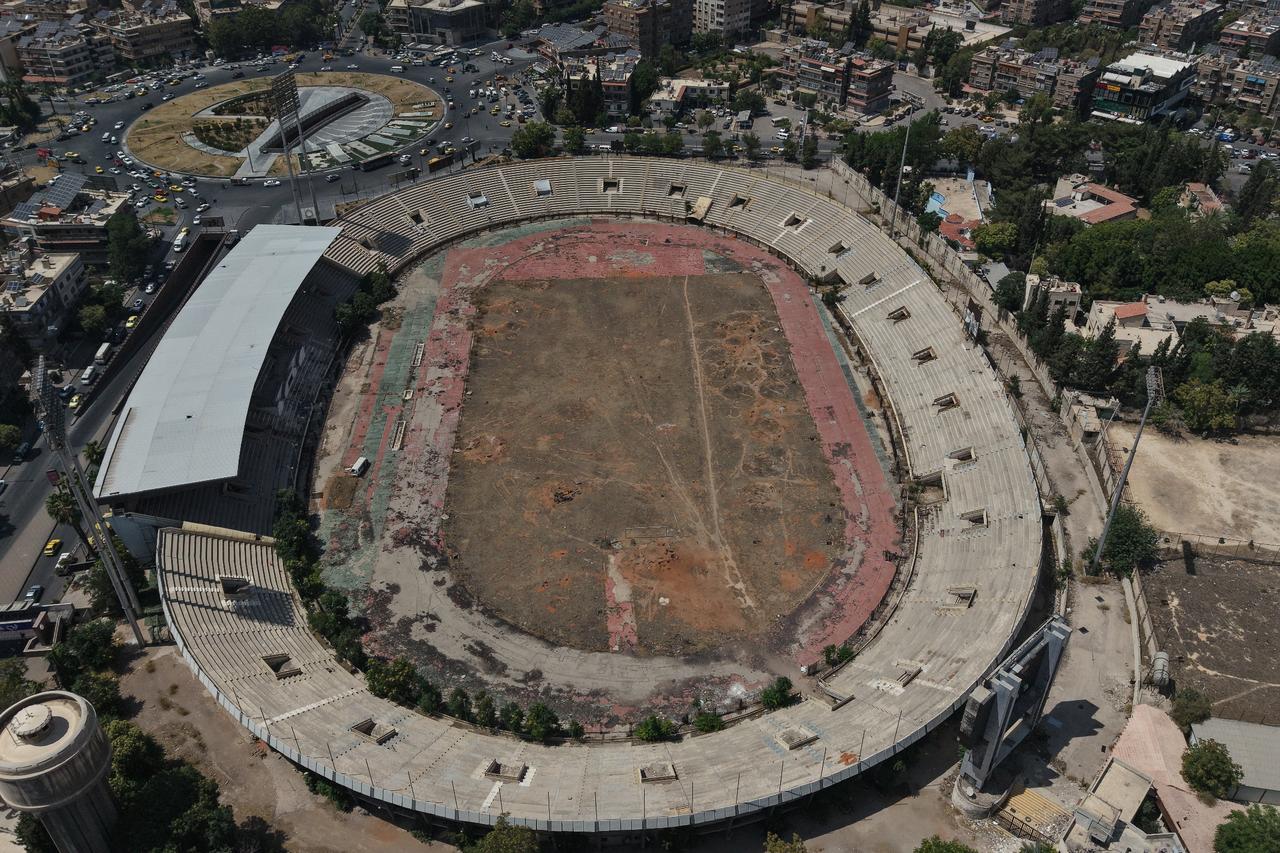
Located in the capital Damascus, Abbasiyyin Stadium once echoed with cheers from packed crowds watching international matches. Built in 1957, it is the oldest stadium in Syria and had long served as a central venue for national and international sporting events. However, after the outbreak of the civil uprising in 2011, the site was turned into a military base by the now-ousted Bashar al-Assad regime.
Strategically positioned between Damascus city center and the opposition strongholds of Kabun, Cobar, and Zemelka, the stadium was repurposed as an artillery post. Mortar and artillery batteries were deployed within the stadium grounds, launching attacks especially on the Eastern Ghouta region. Instead of sports fans, the site became a frontline of conflict.
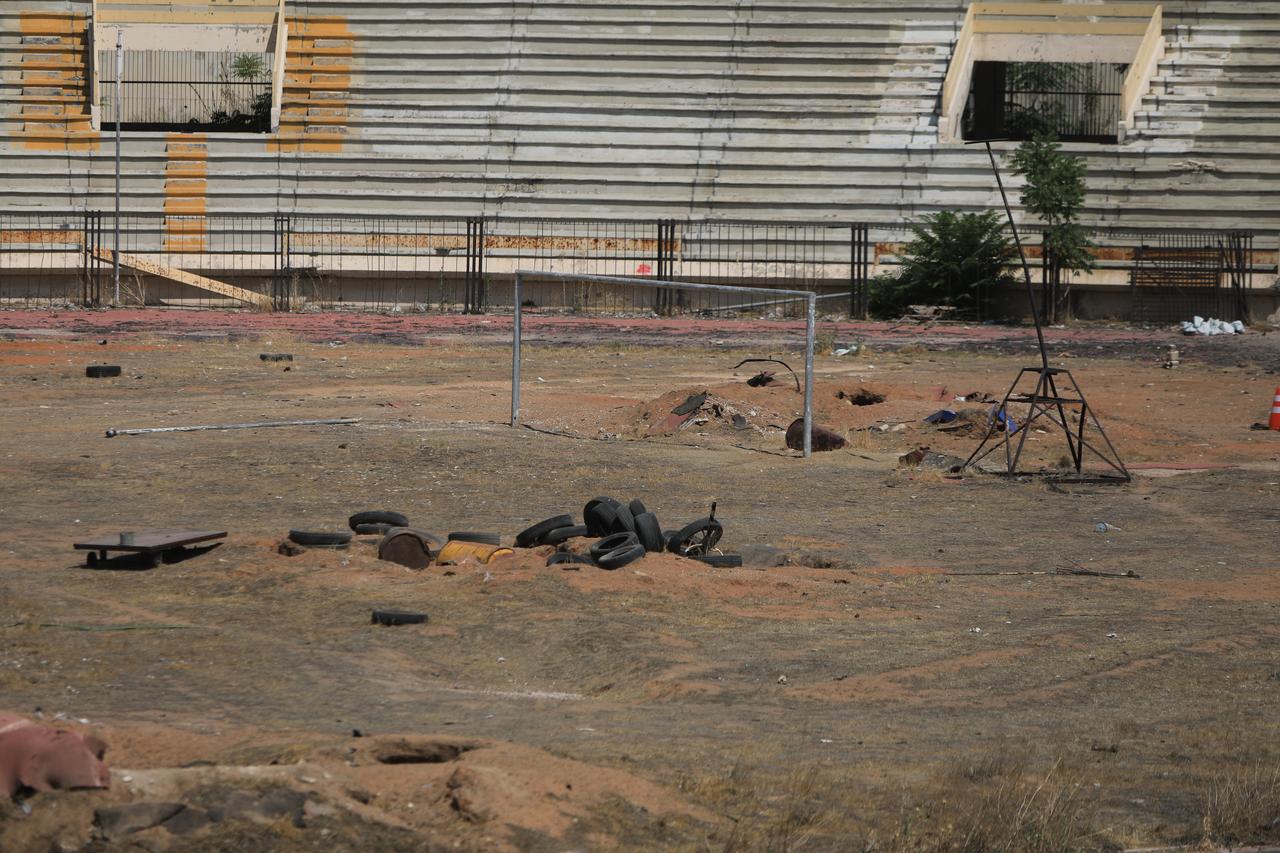
Drone footage released by Anadolu Agency shows the stadium's current condition: a devastated site with collapsed infrastructure, abandoned storage rooms, and remnants of war such as trenches, mortar shells, and unexploded ordnance still scattered across the field.
The damage is not only physical. Former national footballer Nabil al-Suhni recalled the emotional connection the public once had with Abbasiyyin Stadium. “We played three cup finals. The stadium was packed and the matches were dramatic. There was definitely a special atmosphere. It was one of the most beautiful finals, like the Republic Cup, and people still remember it to this day,” he said.
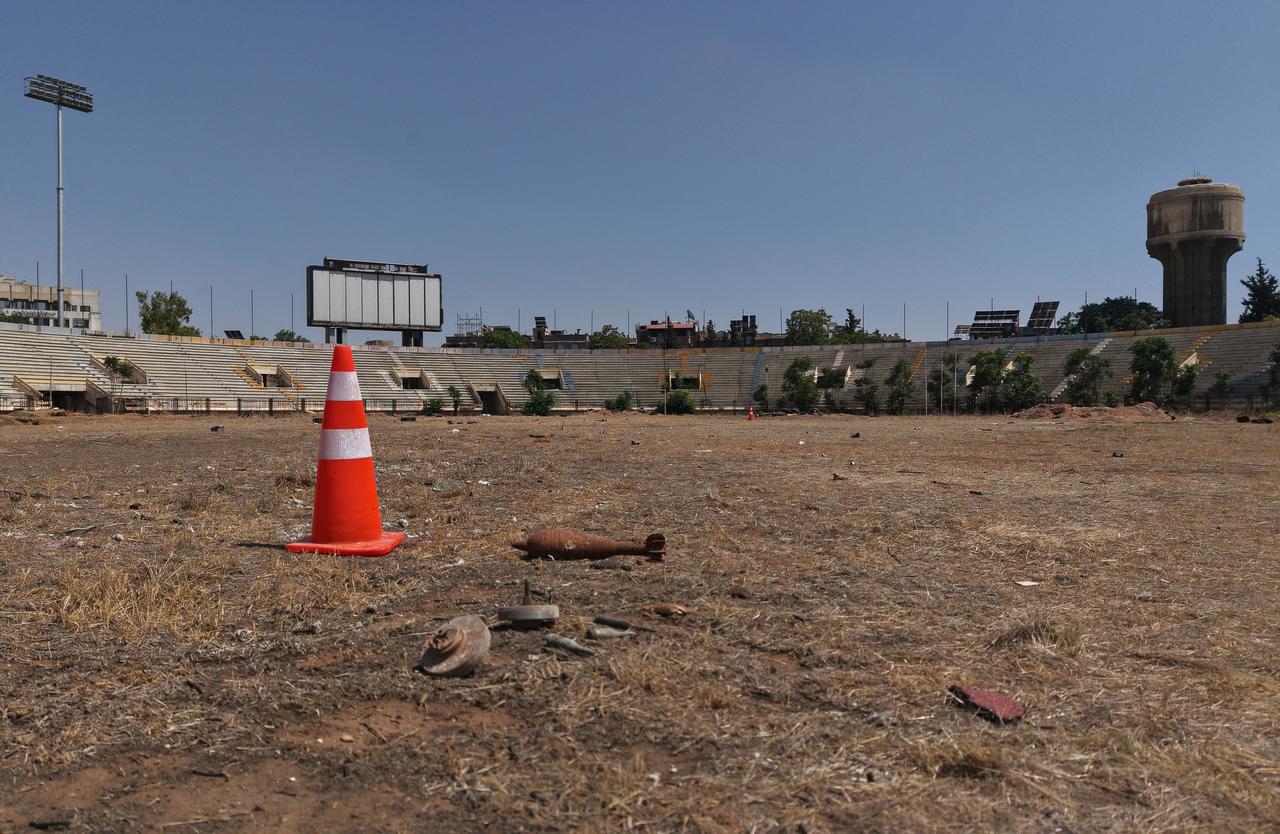
The transformation of Abbasiyyin into a military barracks underlined a broader trend during the war. According to al-Suhni, most major sports facilities in Syria were diverted for military use during the conflict, with only a few exceptions such as Al-Jala and Al-Fayha Stadiums. The conversion of these public venues not only deprived citizens of recreation but also caused lasting harm to the social fabric of the region.
The stadium was reportedly also used as a temporary detention facility during the height of the conflict. “The Assad regime used the stadium as a military headquarters as well as a temporary detention center,” one source noted, describing how many innocent civilians were either killed inside or bombarded from the stadium grounds.
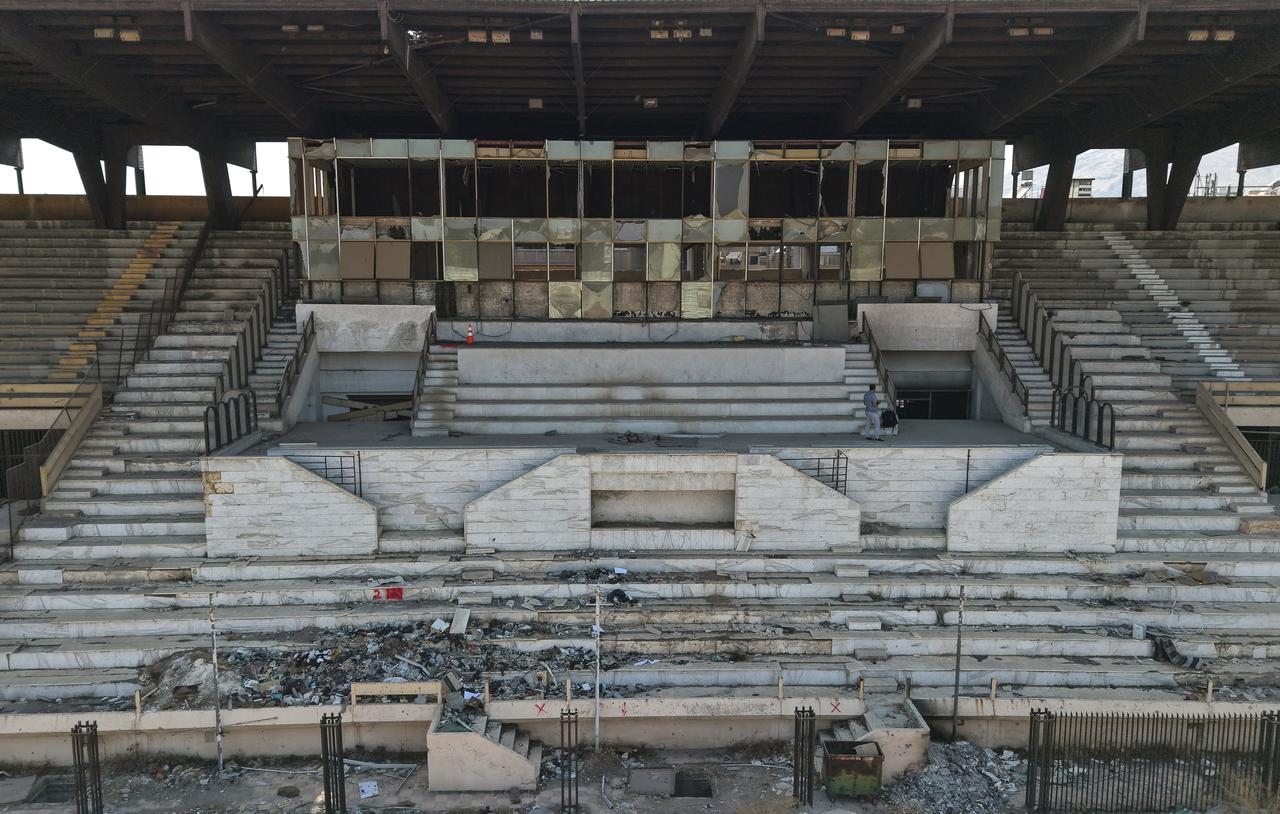
The stadium has remained out of service since 2012. Officials now recognize the need for a full rebuild and are seeking international support to restore the country’s sporting infrastructure. Al-Suhni emphasized that the presence of unused explosives still poses a serious threat, making it urgent to clear and rebuild the site.
Efforts are underway to secure assistance for this goal. Authorities are currently holding talks with neighboring and Gulf countries, aiming to mobilize financial and technical aid.
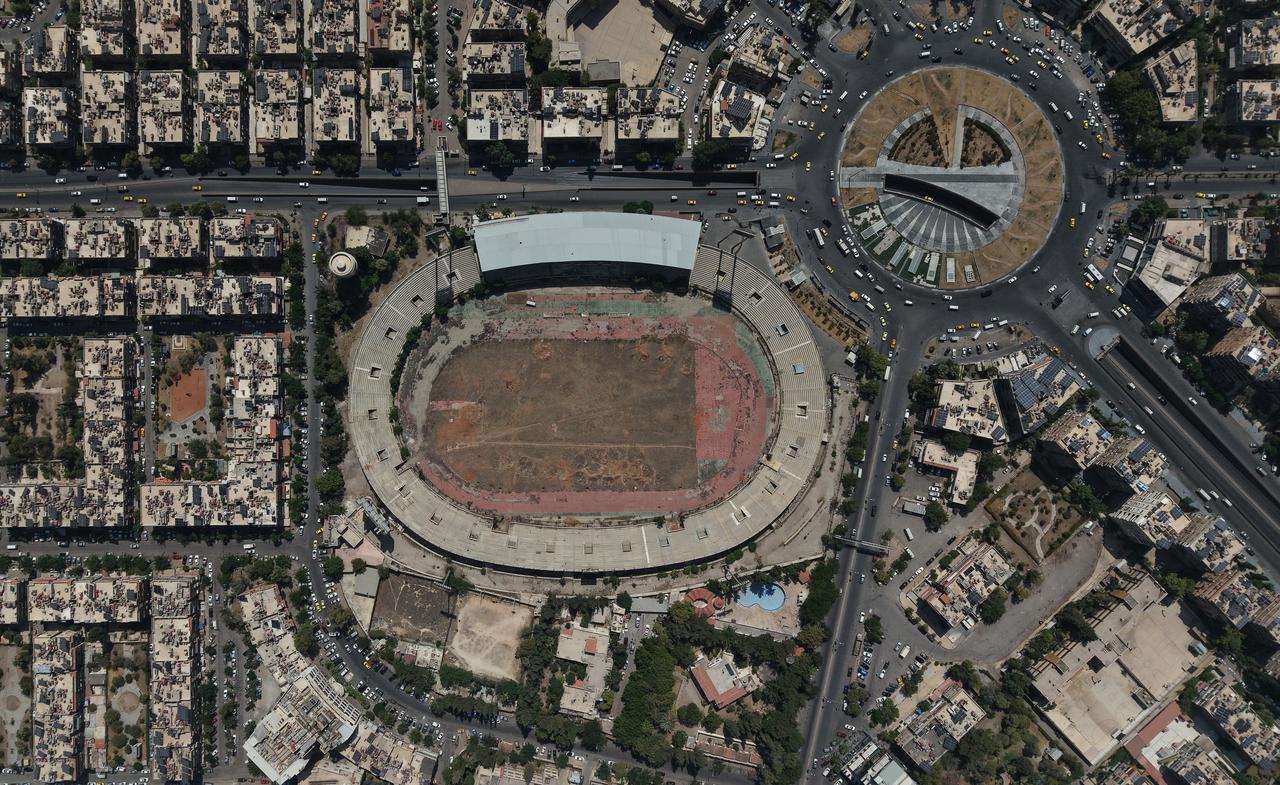
“We will restore the sports infrastructure in a manner befitting the country. This will be a project not only for the country, but also for the people who have made sacrifices,” one official stated. They also thanked international partners who have already extended support.